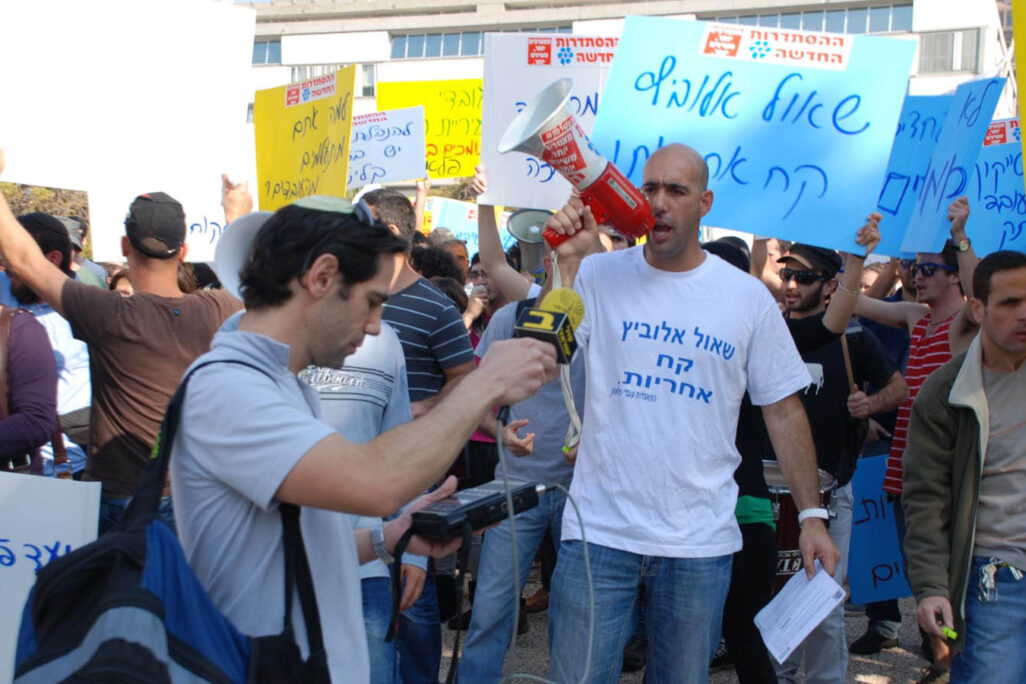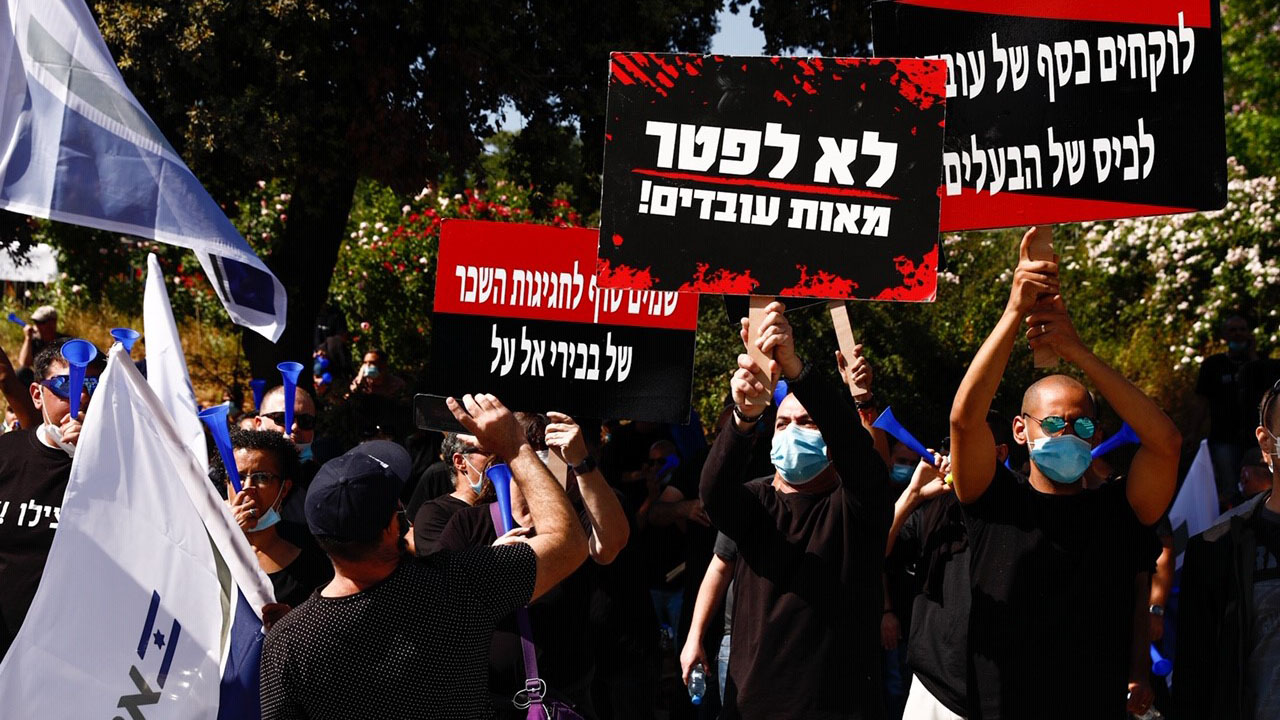
Had the coronavirus crisis occurred in 2010, the lives of some Israeli CEOs would probably have been much easier: at the first sign of revenue loss, thousands of workers would simply be laid off. Those were the good old days. Companies would insist of course that they were "like a family", but the moment that the company incurs financial damages and losses, those family ties would be forgotten immediately.
But things have changed since 2010. Over the past decade, over 200,000 workers in Israel have unionized, changing the rules of the game in the workplace. Today, it is no longer possible for employers to simply threaten layoffs without expecting workers to stand on the picket line.
A clear example of a company trying to play by the old rules of the game is Harel Insurance, whose employees are not unionized. In 2016, while some workers were attempting to form a union, the company increased salaries and improved working conditions in a successful attempt to convince the majority of employees that unionization was unnecessary. Now however, over a quarter of the company's employees have been laid off, in an attempt to cut costs in face of the COVID-19 crisis. Unfortunately, there is no one to fight for them.

At Pelephone, where workers have been unionized since 2016, the last few months have been very different. Some weeks ago, the CEO met with the workers' committee to discuss the possibility of pay cuts. The committee responded immediately: Cuts were out of the question unless corporate salaries were cut at the same rate. The same happened at Clal insurance company whose employees have been unionized since 2012. The Chairman of the Board feels that now, as the coronavirus crisis is in full swing, it is appropriate to replace the current CEO, who happens to oppose relieving the company of its losses by laying off its employees. The workers' council quickly recognized what was going on, and began checking the batteries in their megaphones.
Pelephone and Clal Insurance are two of the companies whose employees unionized and joined the Histadrut, fighting hard for their right to unionize and collective bargaining.
The same committees that have proven over and over the last decade that the workers' committees are capable of mobilizing to take action when the well-being of workers comes under threat. It should be noted that these committees are made up of workers who are loyal to their companies and committed to their success. They have the know-how to mobilize and offer creative solutions to effectively address threats that their company may face, sometimes exceeding the capability of the management.
It is also important to note that today's workers' councils culture is less conflict minded, and more orientated towards securing rights through compromise. It has a deep understanding that the interests of the employees and the benefits of the company are intertwined. So far, many councils have succeeded in reducing harm to their employees. Many companies whose employees are unionized have been able to respond to the crisis in its early stages, and in several unionized companies, special agreements were reached between the employees and management. Unionized workers knows that there are those who will fight for them when necessary. The councils are not able to prevent layoffs everywhere. The crisis has severely damaged many companies, but even if employees are laid off, it will only be after having exhausted all other possibilities, and creating a safety net of proper severance plans.

On the economic level, too, the struggle of organized workers against the attempts to roll over all the costs of the crisis on them will continue to be significant. After all, every worker is also a consumer who creates demand in the Israeli economy, whether it be demand for pension savings management services from insurance companies, or a demand for cellular and internet packages. The demand for pension savings management to be deposited with insurance companies, as well as demand for cellular communications and upgraded Internet packages.
During the coronavirus crisis, employer organizations and the Histadrut have joined hands, demanding that the government also pitch in to prevent a recession. Hopefully, during the recovery process, we will see at least the major employers join hands with their employees to bring about an economic recovery.






